Top Class Action Lawsuits
Last Updated: November 3, 2024
Class action lawsuits are a type of legal case where one claimant represents a wider group (the class) in litigation against an individual or company, usually the latter. Sometimes unfairly tagged as being frivolous, class actions can often be serious legal challenges, highlighting wrongdoing on the part of a company. In many cases, these suits make the news headlines because the sums of money involved in class action compensation payouts can be huge, often running into billions of dollars. Below we discuss some of the more prominent recent class-action lawsuits in the United States:
Dozens of Universities Targeted in Financial Aid Price-Fixing Lawsuit
A lawsuit filed against forty of the best private universities in the U.S. accuses the institutions of conspiring with one another to overcharge their students for education.
The lawsuit claims that these universities have cheated applicants who come from divorced or separate homes by including their financial background when determining the financial aid package.
Harvard, Cornell and Dartmouth were among the top schools targeted by a class-action suit filed on Monday in U.S. District Court for Northern District of Illinois by a Boston University alumnus and Cornell University alumnus.
The College Board, a nonprofit organization that developed the financial assistance methodology that the schools are alleged to have used, is also named in the lawsuit. It seeks $5,000,000 in monetary damages as well as a court order stopping the alleged conspiracies.
NFL Sunday Ticket Lawsuit
The NFL Sunday Ticket lawsuit revolves around allegations against the National Football League (NFL) and DirecTV, the service provider for NFL Sunday Ticket. The plaintiffs, which include consumers and commercial entities, claim that the NFL and DirecTV have engaged in anti-competitive practices by restricting the availability of NFL Sunday Ticket games.
The key points of the lawsuit:
- Monopoly and Market Restrictions: The plaintiffs argue that the NFL and DirecTV have created an unlawful monopoly by making NFL Sunday Ticket the exclusive means for watching out-of-market games. This restricts consumer choice and prevents other potential providers from entering the market.
- Inflated Prices: Due to the lack of competition, the prices for NFL Sunday Ticket are alleged to be artificially inflated. Consumers and commercial establishments, such as bars and restaurants, claim they are forced to pay high prices to access games that are not broadcast locally.
- Bundling and Package Requirements: The lawsuit contends that the NFL and DirecTV's bundling practices, which require consumers to purchase the entire NFL Sunday Ticket package instead of allowing them to buy games on an individual basis, further exacerbate the anti-competitive nature of the service.
- Impact on Fans and Businesses: The restrictive practices are said to negatively impact both individual fans, who face high costs and limited access to games, and commercial businesses, which must pay substantial fees to show NFL games to their customers.
The plaintiffs seek relief through the courts to dismantle the alleged monopoly, reduce prices, and create more competitive options for viewing NFL games. The lawsuit highlights broader concerns about how sports broadcasting rights are managed and the potential for anti-competitive behavior in the industry.
Steam Class Action Lawsuit
Zaiger LLC, a company owned by Steam, has been hired by tens of thousands Steam users to hold Steam owner Valve accountable for the inflated PC game prices. Valve makes game publishers agree to not sell their games cheaper anywhere else. This prevents other game sellers from lowering their prices to try and win your business. Valve's illegal business practices violate U.S. Antitrust Law. As a result, Valve could be entitled for compensation of hundreds or thousands.
Steam Settlement
A class action lawsuit against the video game giant Valve could result in millions of gamers receiving significant compensation.
Valve has been sued by several video game developers, who claim that Valve acted in an anti-competitive manner with regards to pricing on their video game marketplace Steam.
Free Case Evaluation
If you believe that you or a loved one were harmed by any pf the products on our site, we can help you fight for your rights and compensation.
Panera Bread faces wrongful death lawsuit over caffeinated "Charged lemonade"
Panera Bread faces a lawsuit for wrongful death after customers died allegedly from drinking its popular charged lemonade beverage. According to the wrongful death lawsuit filed in Superior Court a customer had a cardiac event on October 9 while walking from a Panera Bread store in Fleming Island in Florida. According to the lawsuit, Panera knew or should have known about the dangers of lemonade, especially for children, pregnant women and nursing mothers, and caffeine-sensitive individuals.
In the past few months, charged lemonade has been the subject of intense legal scrutiny. It contains more caffeine than both a Monster Energy 16 ounce drink and a Red Bull 12 ounce. After the first wrongful-death lawsuit, in which a woman aged 21 died after drinking the drink - filed in October - Panera claimed that it had enhanced its existing caffeine disclosure in its platforms and restaurants.
Panera responded to the customer's death with a statement released on Tuesday. The company expressed its sympathy for Brown's family, while defending the safety and quality of their products. In the statement, Panera noted that their investigation had led them to believe Brown's death was not due to their product. Panera described the lawsuit filed by the same firm as the prior claim as "equally lacking merit".
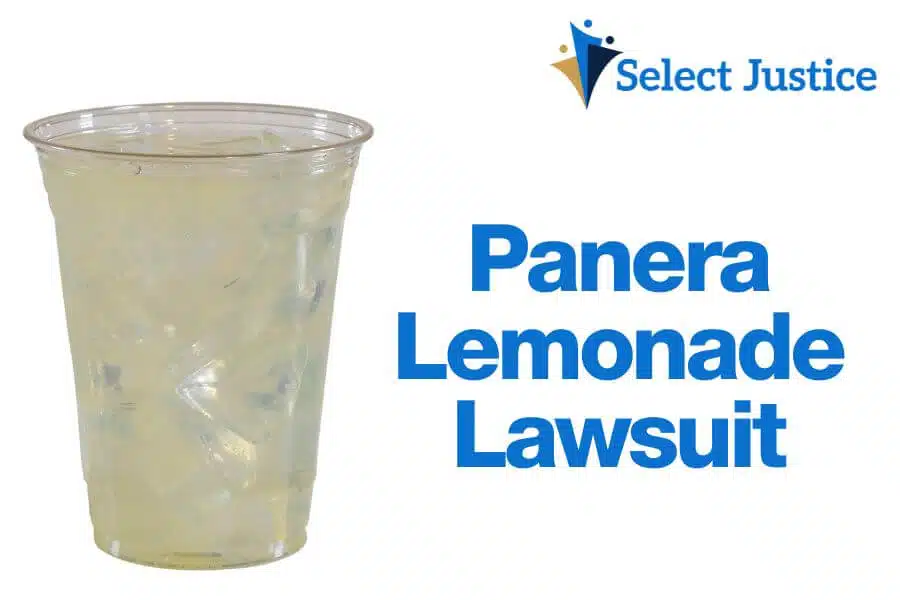
Mr. Cooper Class Action Lawsuit
Mortgage lender Mr. Cooper confirms that personal data belonging to millions of customers and applicants was stolen in October Cyberattack. Mr. Cooper, one of the largest mortgage services in the United States, confirmed in a SEC filing it had been the victim of a cyberattack resulting in the theft personal information.
Mr. Cooper (formerly known as Nationstar) revealed on Nov. 2 that cyber criminals had hacked the system on Oct. 31, The lender responded by blocking access to its systems. Customers could not log in to their accounts. Mr. Cooper admits now that the breach led to the theft of sensitive data belonging to almost 15 million customers, applicants and former clients.
You could be eligible for a prize if you subscribe to AMC+ and stream any of its video networks. You may already have received an email regarding the settlement of a class-action suit filed against AMC Networks. AMC Networks operates AMC+ as well as Acorn TV and the streaming services HiDive Shudder, Sundance Now, AllBlk.
Several AMC+ subscribers and other service subscribers filed the lawsuit in January 2023. They accused the company of disclosing personally identifiable information (PII) about subscribers via third-party tracking technologies without the users' consent. AMC Networks, the attorneys representing the subscribers and the settlement administrator reached an agreement in December. The settlement administrator has recently begun emailing potential settlement class members.
Baby Shark Bath Toys Recall (Zuru LLC)
The US Consumer Product Safety Commission has announced a recall of 7.5 million Baby Shark bath toys due to reports of injured children. Zuru LLC, a California-based company that imports these products from China, is initiating the recall.
Specifically, they are recalling 6.5 million full-size Robo Alive Junior Baby Shark Sing Swim Bath Toys and 1 million mini-size Robo Alive Junior Mini Baby Shark Swimming Bath Toys. The commission stated in a news release on Thursday that there have been 12 reported incidents of children sustaining impalement injuries, lacerations, and puncture wounds when falling or sitting on the full-size version of the Baby Shark bath toy.
These injuries affected the children's genital, anorectal, and facial areas. Of the reported cases, nine required stitches or other medical attention, according to the CPSC. Fortunately, there have been no reported injuries associated with the recalled Mini Baby Shark bath toys, as mentioned in the news release.
EpiPen Class Action Lawsuit
Mylan , maker of EpiPen sending payment to customers as part of settlement.
EpiPen is the brand name for epinephrine injector, a hand-held medical device used to inject adrenaline into the body after someone suffers anaphylaxis (anaphylactic shock). While there are other epinephrine injector brands available in the United States and worldwide, EpiPen is the market leader. However, its distributor and manufacturers (Mylan and Pfizer) have been criticized for raising the prices of EpiPen, and they have faced class-action lawsuits claiming that such price-fixing amounted to illegal anti-competitive practices. Famously, it was cited that a pack containing a pair of EpiPens was sold for $100 in 2008, but Mylan was selling the same pack for $600 in 2016.

The outcry over the 2016 price hike set the ball rolling for the EpiPen class-action lawsuits against Pfizer and Mylan. In the summer of 2021, the case was resolved after Pfizer agreed to pay $345 million to settle. The EpiPen case is complicated, not least by the fact that the ownership structure of the medical devices is convoluted. But the fund was made available for anyone who had bought an EpiPen between August 24th, 2011, and November 1st, 2020, to claim a class action rebate. Please note that the filing claim deadline for this class action payout passed in November 2021.
Free Case Evaluation
If you believe that you or a loved one were harmed by any pf the products on our site, we can help you fight for your rights and compensation.
Ikea Class Action Lawsuit
Plaintiffs claim that IKEA U.S. Retail issued receipts at their retail locations for debit and credit card transactions which included more than 5 digits in the card number, in violation of Fair and Accurate Credit Transactions Act, under 15 U.S.C. SS 1681c(g)(1) et seq. ("FACTA"). IKEA denies Plaintiffs’ allegations and any wrongdoing. The Court hasn't ruled on IKEA's defenses or Plaintiffs claims. IKEA did not admit the validity or truth of any of its claims by entering into the Settlement.
IKEA has agreed that it will pay $24,250,000 to the Settlement Fund as a full and final settlement of all claims by the Settlement Class, defined as those who have between October 18, 2017, and December 31, 2019, made one or more purchases using a credit or debit cards at any IKEA store in the United States and received an electronic receipt showing the first six digits and the last four(4) digits on the card used.
The Settlement Fund is used to pay for all settlement-related costs, including attorneys' fees, reasonable expenses and notice and administration costs. Class Counsel expects to petition the Court for attorneys fees of $9,700,000.00, which is 40% of Settlement Fund, plus Class Counsels' reasonable expenses. They will also request an Incentive payment of $10,000.00 per Plaintiff. Settlement Class Members that timely submit a valid Claim form will receive a payment distribution calculated by dividing available funds to be distributed by the number who submit valid Claim forms.
The Notice explains your rights and options and gives you deadlines for exercising them. You can still lose your legal rights if you don't take action. Please read the notice carefully.
The court in this case must still decide whether or not to approve the settlement. If the Court approves of the Settlement, and any appeals have been resolved, payments will be made. Please be patient.
Apple Replacement Device Lawsuit
You could be part of a class-action lawsuit if you bought AppleCare Protection Plan, AppleCare+, or the iPhone Upgrade Program for an iPhone, iPad or iPod touch on or after July 20th, 2012 and received a remanufactured iPhone, iPad or iPod touch.
The United States District Court of Northern District of California has granted final approval to a lawsuit filed against Apple Inc., AppleCare Service Company, Inc., Apple CSC Inc., (collectively, the "Defendants") The plaintiffs have claims arising from two Apple Inc. extended service plans: AppleCare+, and its predecessor AppleCare Protect Plan.
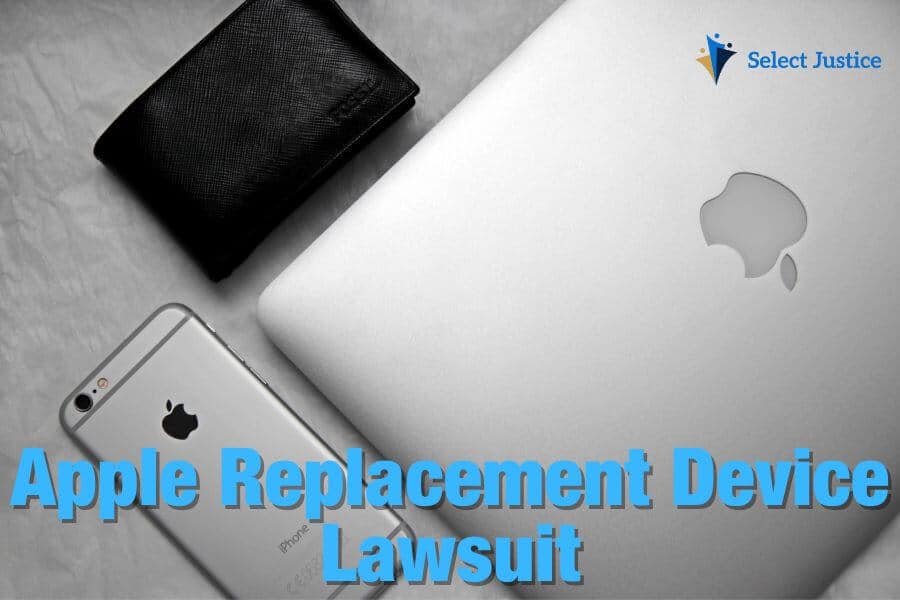
AppleCare+ and AppleCare+ terms stated that if a customer requested service for an iPhone or iPad that had been damaged or defective due to a defect in hardware or other reasons, Apple Inc. would repair or replace the device with one that was "new" or "equivalent to new performance and reliability."
Remanufactured iPhones and iPads are one of the replacements that customers can get under AppleCare Protection Plan or AppleCare+. Plaintiffs claim that remanufactured products are not "equivalent in performance and reliability to new" and they assert claims against defendants for breach of contract. They also allege violations of Magnusson-Moss Warranty Act, Song-Beverly Consumer Warranty Act and California's Unfair Competition Law.
Liver King Class Action Lawsuit
Brian "Liver King", a fitness influencer, has been sued for $25 million in a class action lawsuit alleging he deceived customers by using his marketing techniques to sell his products. Now that Johnson is out open about his use of steroids to build his muscle-bound body, the social media influencer has been fined $25 million.
The New York complaint against Johnson, 45, and his two companies, Ancestral Supplements, LLC, and The Fittest Ever, LLC, alleges that the defendants deceived consumers by claiming that the Liver King owed his lean body to his consumption of copious amounts raw offal and not his newly-disclosed steroid use.
Fortnite Class Action Lawsuit
In December 2022, a class action lawsuit was filed against the popular video game Fortnite, alleging that the game's creators, Epic Games, have engaged in practices that are unfair and deceptive to players. The lawsuit was brought by a group of concerned parents and players who claim that the game is highly addictive and has caused significant harm to both young players and their families.
The plaintiffs in the case argue that Epic Games has intentionally designed Fortnite to be as addictive as possible, using tactics such as "loot boxes" and "rewards" to keep players coming back to the game again and again. These in-game purchases, which can cost real money, are often presented as a way for players to improve their chances of winning, but the plaintiffs allege that they are actually designed to exploit players' psychological vulnerabilities.
Free Case Evaluation
If you believe that you or a loved one were harmed by any pf the products on our site, we can help you fight for your rights and compensation.
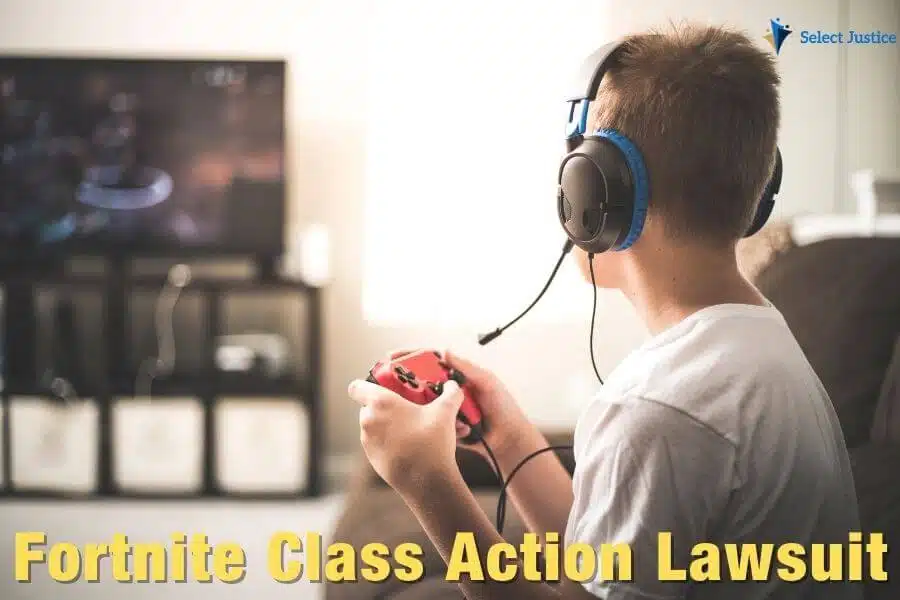
The lawsuit also claims that Epic Games has not done enough to protect young players from the potentially harmful effects of excessive gaming. The game is rated for players aged 13 and up, but many younger children are able to access it and become addicted. The plaintiffs argue that Epic Games has a responsibility to take steps to prevent this from happening, such as implementing stricter age verification measures or providing more information to parents about the potential risks of playing the game.
The case is still ongoing, and it remains to be seen whether the plaintiffs will be successful in their claims against Epic Games. However, the lawsuit has brought attention to the potential dangers of excessive gaming and the need for companies to be more responsible in the way they design and market their products.
Regardless of the outcome of the case, it is clear that the issue of video game addiction is a serious one that needs to be addressed. As technology continues to advance and more and more people turn to video games for entertainment, it is important for game creators and regulators to consider the potential harm that these games can cause and take steps to protect players, especially young ones.
Skittles Candy Lawsuit Titanium Dioxide
Most people have had Skittles candy at one time or another, and it’s hard to imagine that a product so common on American shelves could be laced with a toxic substance. Recently, a class action lawsuit was filed against Mars., Inc, the company that produces Skittles, indicating that the company used titanium dioxide in their products.
Many foods contain titanium dioxide. The chemical serves as an anti-caking agent, whitener, and color additive. It can be tough to say whether it’s safe to eat titanium dioxide. In 1966, the Food and Drug Administration ruled that it was permissible to include titanium dioxide in human food (as long as the titanium dioxide did not account for more than 1% of the food’s total weight).
A 2015 study showed that titanium dioxide could accumulate in certain organs and could potentially harm the kidneys, liver, and spleen. Other studies have shown that the chemical may contribute to the development of digestive issues, including colorectal cancer.
The class action lawsuit against Mars, Inc., is currently pending.

Lawsuit Against Texas Pete Hot Sauce
After learning that Texas Pete hot sauce is not made in Texas (the product was made in Winston-Salem North Carolina), a man filed a class-action lawsuit against the company. This is what the lawsuit claims to be false advertising.
Philip White, a California resident, purchased Texas Pete in a Ralph's supermarket on September 20, 2021. According to The Clarkson Law Firm's complaint filed on behalf of White, on Sept. 12, in Los Angeles federal court.
According to the lawsuit, White would not have purchased Louisiana-style hot sauce or paid the same amount if he had known its origin.
According to the complaint, the makers knew that consumers wanted authentic American cuisine and culture.
Texas Pete's website lists T.W. as the parent company. Garner Food Co. explains how and where the hot sauce is made. Sam Garner, the founder of Garner Food Co., decided to make Texas Pete his home due to its reputation for spicy food and because it was close enough to his son's name. Built in 1942, the current factory sits on the site of the Garner family's original home in northwest Winston-Salem. According to the website, Texas Pete, proud of his cowboy heritage and proud North Carolinian, is still thriving.
The product's label on the back shows that it was made in North Carolina. The lawsuit states that the product's back label does not state North Carolina, but consumers would probably not notice. According to the complaint, the product's label features distinctively Texan imagery. This includes the famous white lone star of the Texan flag, as well as a lassoing cowboy.
It says that despite this, they have surprisingly little Texas about them.
The complaint claims that a consumer would have to examine the back labels of the Products in detail. This would not change the reasonable impression that the front label gives, which is Texas-made.
T.W. Garner Food Co. must pay damages and change its branding. According to the complaint, Texas branding is a negative for smaller Texas companies and legal competitors who are trying to capitalize upon the Texas hot sauce's authenticity.

Kellogg's Strawberry Pop Tarts Lawsuit
In March of 2022, a class action lawsuit proposal against Kellogg Company was dismissed. The basis for the case was that Kellog’s Pop-Tarts do not contain enough strawberries to be advertised as a strawberry-containing product. U.S. District Judge Marvin Aspen ruled that a reasonable person would not expect a large amount of strawberries to be in a Pop-Tart, as the packaging does not imply a large number of strawberries in the flavored pastry filling.
Plaintiff Stacy Chiappetta stated that Kellogg’s unfairly led customers by using packaging that depicts bright-red filling, implying a large number of strawberries in the product. Chiappetta’s lawyer, Spencer Sheehan, has stated that he believes that while these types of lawsuits are often dismissed, customers are still bringing up valid, legitimate complaints about misleading advertising.
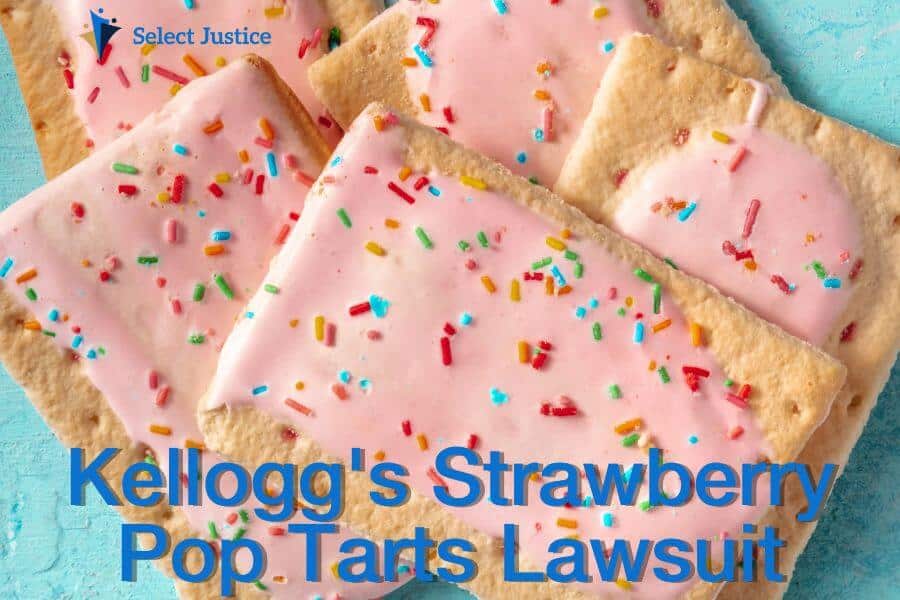
Equifax Data Breach Settlement
Many people put their trust in the three credit bureaus, as the companies have personal information (including credit card numbers, social security numbers, address information, and more) that is assumed to be protected.
In September 2017, Equifax failed to properly protect customer data, resulting in a data breach. The company denied that they did anything wrong, but a class action settlement has been approved as of January 22, 2020. Settlement class members are eligible for either free credit monitoring or a cash payment (maximum payout of $125).
Free Case Evaluation
If you believe that you or a loved one were harmed by any pf the products on our site, we can help you fight for your rights and compensation.
Chicken Class Action Lawsuit
A class action lawsuit against the poultry industry has farmers and customers alike questioning chicken prices over the past decade. A settlement of $181 million is currently pending, and people in 24 states (California, Washington, D.C., Florida, Hawaii, Illinois, Iowa, Kansas, Maine, Massachusetts, Michigan, Minnesota, Missouri, Nebraska, Nevada, New Hampshire, New Mexico, New York, North Carolina, Oregon, Rhode Island, South Carolina, South Dakota, Tennessee, Utah, and Wisconsin) may be eligible for compensation.
If you’ve purchased chicken between 2009 and 2020, click here to learn whether you’re a part of the Broiler Chicken Antitrust Litigation class action suit.
Morgan Stanley Data Security Settlement
Much like Equifax, Morgan Stanley has failed to protect customer data, leaving personal information available to people with nefarious intentions. Some Morgan Stanley customers received letters in July 2020 and/or June 2021 stating that their data was exposed as a part of the breaches that occurred in 2016 and 2019.
Morgan Stanley is required to pay customers who were victims of the breach $60 as a part of a class action lawsuit. Customers who suffered from the lawsuit may be entitled to a variety of types of compensation, including fraud insurance coverage, reimbursement for out-of-pocket losses and/or lost time, attorney’s fees, and a service award.
Parents Choice Wipes Recall
Parent’s Choice baby wipes are manufactured and distributed by Wal-Mart. On April 28, 2022, it was announced that some Parent’s Choice baby wipes are being recalled due to babies experiencing breathing issues following the use of the wipes.
Some parents noticed that their skin was stained after touching the wipes. Others noticed that their skin burned following the skin staining. Currently, Wal-Mart has recalled Parent’s Choice baby wipes with certain lot numbers, including L22075, L22076, L22077, L22078, L22079, L22080, L22081, L22082, L22083, L22084, L22085, L22089, L22090, L22091, L22092, L22093, L22094, and L22095.
Plaid Lawsuit and Settlement
Financial data company Plaid has been ordered to pay customers $58 million as a result of a class action lawsuit. The company is accused of harvesting and selling customer data without their consent. Plaid was used by many apps to link customer bank accounts, allowing for a smooth payment process.
Apps that used Plaid’s services include Stripe, Cash App, Coinbase, and Venmo. Affected customers received a small cash settlement (about $13). In addition to paying people who were affected by the breach. The date to file for a cash settlement from Plaid as a part of the class action lawsuit has passed.
Free Case Evaluation
If you believe that you or a loved one were harmed by any pf the products on our site, we can help you fight for your rights and compensation.
Robinhood Class Action Lawsuit
Robinhood is a popular trading app with over 30 million users that allows amateur investors to trade items like stocks, ETFs, and cryptocurrencies. It is marketed as a way to “provide everyone with access to the financial markets, not just the wealthy.” Robinhood gained fame as the trading app of choice for followers of r/wallstreetbets, a Reddit group that encouraged its followers to make trades of stocks, often going against the positions of large hedge funds. In January 2021, wallstreetbets encouraged its followers to buy stocks in GameStop, a video games store that had a low stock price and that several hedge funds had shorted (back the stock to fail). The wallstreetbets trade “won,” and pretty soon, GameStop stock was soaring to unprecedented highs.
However, instead of honoring its brand name and letting the little guy get rich at the expense of the wealthy, Robinhood suddenly decided to stop allowing users to trade GameStop. Users of the app were irate, accusing Robinhood of depriving investors of their potential gains from the GameStop stock. A class-action lawsuit against Robinhood soon followed, stating that “Robinhood’s actions were done purposefully and knowingly to manipulate the market for the benefit of people and financial institutions who were not Robinhood’s customers.” One Robinhood lawsuit was dismissed by a judge in January 2022, who claimed the user agreement allowed the company to act in such a way. Other Robinhood class actions linked to GameStop stock trading are still pending, however.
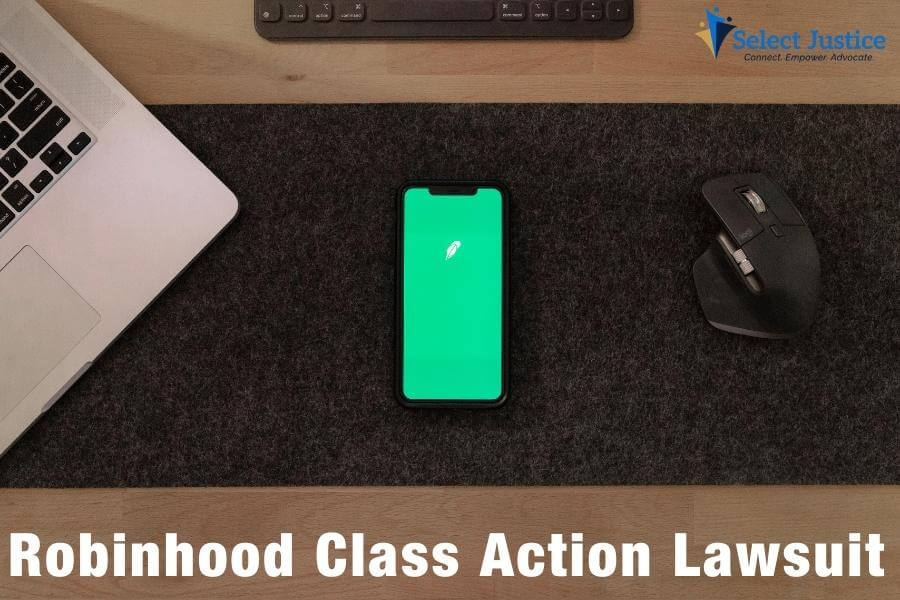
Zoom Class Action Lawsuit
Zoom, the video conferencing software company, was one of the early “winners” of the Covid 19 pandemic. As huge swathes of the population moved to remote working, businesses scrambled to give employees the tools for working from home. Zoom’s stock price soared as millions signed up to use its software to connect to their workplace. On a social level, too, millions of people started to use Zoom so they could meet with friends and family online. However, it soon became apparent that Zoom was not as secure as it claimed to be. Moreover, Zoom was accused of sharing users’ personal data with companies like LinkedIn and Facebook.
A class-action lawsuit against Zoom filed in March 2020 accused the company of several breaches of users’ security and privacy. The infamous “zoom bombing,” where uninvited users could suddenly gate-crash a sensitive business meeting, was one of the many security risks highlighted by the Zoom privacy lawsuits. Zoom’s claims of offering end-to-end encryption were also contested. In August 2021, Zoom was forced to settle the class-action lawsuit for $86 million.

Six Flags Great America Class Action Lawsuit
Six Flags Great America is one of the most popular amusement parks in North America, usually having several million visitors each year. It is part of the Six Flags Entertainment Corporation, which has attractions all over the United States. Great America is located in the state of Illinois. In 2019, a class-action lawsuit alleged that Six Flags Great America was illegally collecting personal data of park attendees. The original Six Flags Great America lawsuit was brought against the company by a mother who claimed the park’s management acted unlawfully in 2014 by taking a biometric scan of her then-15-year-old son’s thumb without prior approval.
The Six Flags class-action lawsuit was an important privacy legal case, reaching the Illinois Supreme Court, which found against Six Flags Great America. The company was forced to settle in 2021, agreeing to pay a $36 million class-action lawsuit settlement for the scanning of the fingerprints of park-goers at Great America without their consent. It was calculated that those who visited the park between October 2013 and December 2018 could be eligible for up to $200 each for their share of the Six Flags class action lawsuit payout.

A class-action lawsuit is a legal procedure where one person represents a wider group of people in litigation against a company or individual. So, for example, if a certain model of television set was deemed to be faulty or didn’t perform as advertised, a class action might be taken out against the firm that produces the sets. This means all the claimants are bundled together in a single case. The outcome of that case might be a class action rebate, i.e., a settlement amount paid by the company to anyone who bought the faulty television sets and joined the lawsuits.
A class-action rebate can be organized in various ways. The simplest method – called a pro-rata settlement – is where the defendant pays a sum of money, which is then split equally among those represented by the class action. There are other means of settling a class action rebate, including voucher schemes, where claimants receive coupons for re-purchasing products, or common fund settlements, which can be divided up among eligible claimants using an agreed formula.
Free Case Evaluation
If you believe that you or a loved one were harmed by any pf the products on our site, we can help you fight for your rights and compensation.
Blue Cross Blue Shield Class (BCBS) Action Lawsuit
Blue Cross Blue Shield is a federation of different American health insurance companies that provide coverage to over 100 million people in the United States. In 2013, a class action was launched against BCBC, alleging that it violated the Sherman Act. The Sherman Act (1890) is a fundamental antitrust law designed to ensure the rule of free competition and stop unfair monopolies in areas of commerce. BCBS was accused of violating antitrust laws due to dividing 36 of its member companies into service areas and ensuring there was no competition between them, while also engaging in price-fixing. In short, it was alleged that BCBS was limiting the options for Americans trying to access health insurance markets.
The Blue Cross Blue Shield class action lawsuit ran for almost eight years before the organization was forced to settle for $2.67 billion in 2020. BCBS did not admit legal fault when agreeing to the class-action settlement payout. However, not all claimants agreed with the terms of the BCBS settlement, and some claimants have vowed to continue their legal claims against BCBS. So, the status of the BCBS class action lawsuit is resolved but only partially.
Kellogg’s Class Action Lawsuit (Added Sugar Class Action)
The Kellogg Company is the world’s largest manufacturer of breakfast cereals, selling its products in 180 countries worldwide. As with rival breakfast cereal companies, it often makes claims centered around the health benefits of its products. Some of the claims made by Kellogg’s seemed to be demonstrably false, and that launched a nationwide class-action lawsuit against the company. In 2021, Kellogg’s agreed to settle the class action, agreeing to pay out more than $20 million to claimants. People who bought certain Kellogg’s cereals between August 2012 and October 2019 were eligible to join the added sugar class action lawsuit and receive a payout.

The Kellogg’s cereals class action covered a range of cereal brands, including Raisin Bran, Smart Start, and Frosted Mini-Wheats. Broadly speaking, the issue was that Kellogg’s was boldly making claims like “Heart Healthy” and “Lightly Sweetened” around products that contained high levels of added sugar. While as is often the case when class actions are settled, Kellogg’s admitted no legal fault, it did agree to change the claims it makes and the way it advertises certain cereals.
Grace Class Action Lawsuit
Apple is clearly one of the world’s most important technology brands. And as such, it is constantly evolving its products with new hardware and software features. Back in 2014, Apple allowed a security certificate to expire, meaning that FaceTime (video calling software) stopped working on certain iPhone 4 and 4s devices. Apple tried to solve the problem by offering users a free update to its latest operating software (then iOS 7), but users complained that the new version of FaceTime was buggy and beset with problems on iPhone 4 models. A class-action lawsuit was launched, claiming that Apple’s actions (some argued intentionally) diminished the performance and value of iPhone 4 models.

The Apple class-action lawsuit lasted for several years, and it became widely known as the Grace class action as one of the lead claimants, Christina Grace, became prominent in the case. Officially, the lawsuit is Grace et al. v. Apple Inc. Nonetheless, Apple eventually decided to settle in July 2021, agreeing to pay approximately $18 million to claimants in the Grace Apple class action lawsuit.
Free Case Evaluation
If you believe that you or a loved one were harmed by any pf the products on our site, we can help you fight for your rights and compensation.
Top Class Action Settlements
Over the years, many class-action lawsuits have resulted in companies paying huge settlements to claimants. Sometimes the sum agreed for a class action payout can reach billions of dollars. Indeed, the largest class-action settlement payment of all time was worth over $200 billion. Below we list some of the top class action settlements:
Master Tobacco Class Action - $206 billion
Arguably the most famous class-action lawsuit settlement in history, tobacco firms including Phillip Morris and RJ Reynolds agreed to pay $206 billion in 1998 to settle cases connected to smoking-related illnesses. This was not a traditional consumer class action, given public prosecutors were involved, but the settlement covered longstanding class action liability against big tobacco companies.
BP Oil Spill Class Action - $20 billion
The second largest (to date) class action payment was $20 billion, agreed by BP (British Petroleum) in 2016 to resolve claims over the Deepwater Horizon Gulf of Mexico oil spill that began in April 2010. It was considered to be the largest oil spill in the history of the petroleum industry. Again, this was not a traditional consumer class action, given the presence of public prosecutors in the case. The BP class action payout largely went to local authorities, as well as covering fines and penalties handed out for BP’s actions.
Volkswagen Emissions Class Action - $14.7 billion
The Volkswagen car emissions class action came about after the German automobile manufacturer was caught cheating in emissions tests for a range of diesel cars. In short, Volkswagen fiddled the tests in order to claim the cars were more environmentally friendly than they were. A California judge ordered a $14.7 billion settlement payment, some of which was shared among almost 500,000 Volkswagen car owners.
Enron Securities Fraud Class Action - $7.2 billion
The Enron accounting scandal is one of the most infamous in the history of corporate finance. The Enron class-action lawsuit was also one of the biggest in history, with around 1.5 million shareholders represented in a suit against the firm. Enron’s executives had used various shady and illegal accounting loopholes to cover up the corporation’s debt and other issues. When the truth became known, Enron’s stock price tumbled. A Houston-based judge ordered the $7.2 billion settlement in 2008.
Other top class action payouts are listed below:
- Worldcom Accounting Class Action - $6.1 billion (2005)
- Fen-Phen Diet Drugs - $3.8 billion (2000)
- American Indian Trust - $3.4 billion (2011)
- Dow Corning Silicone Breast Implant - $3.4 billion (1994)
- Cendant Accounting Fraud - $3.2 billion (2000)
Class Action Lawsuits FAQ
What is a class action lawsuit?
A class action is a type of lawsuit taken against a company or individual. Class actions are characterized by having one individual claimant represent a larger group of claimants. This helps streamline the process in the courts as multiple claims are combined into one, with the claimants sharing the class action payout award. Class action lawsuits can be litigated for many reasons, ranging from personal injury claims to defective consumer products.
What is the average payout for class action lawsuit?
The amount of money received for a class action lawsuit payout can vary and depend on a number of factors: the nature of the lawsuit, the number of claimants, the level of injury caused, the culpability of the defendant, and so on. Some law firms estimate that the average class action payout is somewhere around $20,000 per person, but, again, this depends on many factors. It should be noted that an individual class action payout to a claimant could be anything between a few dollars to huge sums over $1 million.
What is the highest payout for a class action lawsuit?
As we noted earlier, the Big Tobacco class action lawsuit holds the record for a payout of over $200 billion. Some of the individual claimants in this lawsuit were estimated to have received $8,000 per month from the tobacco lawsuit payout.
Is it worth joining a class action lawsuit?
Yes. Because it usually costs nothing to join (lawyers’ fees are normally paid out of the settlement), nor will you likely be expected to appear in court or do anything more than fill in a form. Moreover, class actions can often be settled out of court, with defendants and claimants agreeing a drawn-out case could be more expensive for both parties.
How do I find out about a class-action lawsuit?
You may receive an email or letter notifying you of a particular class action case and your eligibility. However, be careful as the communications may be spam or a phishing scam. Sites like Select Justice and others will always keep you up to date with important lawsuits, letting you know if you are eligible to join.
What is a class action no proof?
A no proof class action lawsuit is a type of case you can join without needing to provide a receipt to prove you purchased a product. Claimants can join if there is a reasonable expectation they would have bought a product. For example, the previously mentioned Kellogg’s cereals class-action lawsuit would have been open to people who did not necessarily have the proof of purchase (receipts) from years ago.

Medical Malpractice
Dangerous & Defective Products
Personal Injury Lawsuits
DUI Lawyer Support
Employer Negligence
Mass Tort Lawsuits
Top Class Action Lawsuits
Expertise
Reviews
FAQ
















